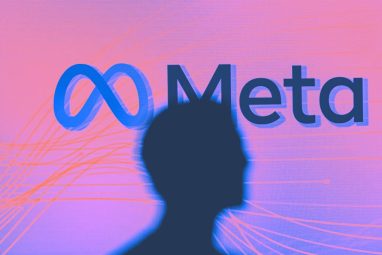Meta in Talks to Buy Google’s AI Chips, Challenging Nvidia’s Supremacy
The potential Meta deal could catapult Google into the AI hardware big league and pressure Nvidia’s long-standing lead.
News
- MBZUAI Unveils K2 Think V2, Advancing the UAE’s Push for Fully Sovereign AI
- ENEC, TII, and ASPIRE Partner to Advance Autonomous Aerial Systems
- OpenAI Bets on AI to Streamline Scientific Research Workflows
- AI Use Is Rising at Work but Productivity Gains Lag
- Meta Signals Shift Toward Paid Features With Subscription Tests Across Its Apps
- All LLMs Are Trained on the Same Data’: Oracle Chief Flags AI’s Biggest Challenge

Meta is in advanced discussions to spend billions of dollars on Google’s custom artificial intelligence chips beginning in 2027, according to The Information. If finalized, the deal would position Google as a direct challenger to Nvidia’s long-standing dominance.
The talks reportedly involve a two-part arrangement. First, Meta would buy Google’s tensor processing units (TPUs) for use in its global data centers starting in 2027. Second, Meta could begin renting TPU capacity through Google Cloud as early as next year, expanding its access to AI compute ahead of its long-term hardware investments. For Google, the move is part of an effort to invite customers to run these chips in their own facilities, rather than limiting them to Google’s internal infrastructure.
If adopted at scale, TPUs could provide Meta with an alternative to Nvidia’s increasingly expensive and supply-constrained GPUs. Meta alone is expected to spend as much as $72 billion on Nvidia chips this year, making it one of the company’s largest customers. Securing even a fraction of that business would be a significant win for Google.
Some Google Cloud executives estimate that opening TPU hardware to external customers could help the company capture up to 10% of Nvidia’s annual revenue, a slice worth billions of dollars.
The market reacted positively as Alphabet shares rose more than 4% in premarket trading on Tuesday, briefly putting the company on track for a $4 trillion valuation.
Google’s position has strengthened in recent months. The company has expanded its partnership with Anthropic, which now has the option to use up to one million Google AI chips. Its cloud business (once overshadowed by Amazon and Microsoft) has turned into a growth driver, fueled by demand for AI infrastructure and the rollout of next-generation Gemini models.
Still, challenging Nvidia will not be straightforward, as its CUDA software ecosystem, built over nearly two decades, remains a powerful moat. Even with competitive hardware, Google will need to convince developers and enterprises to shift workloads away from Nvidia’s entrenched platform.







